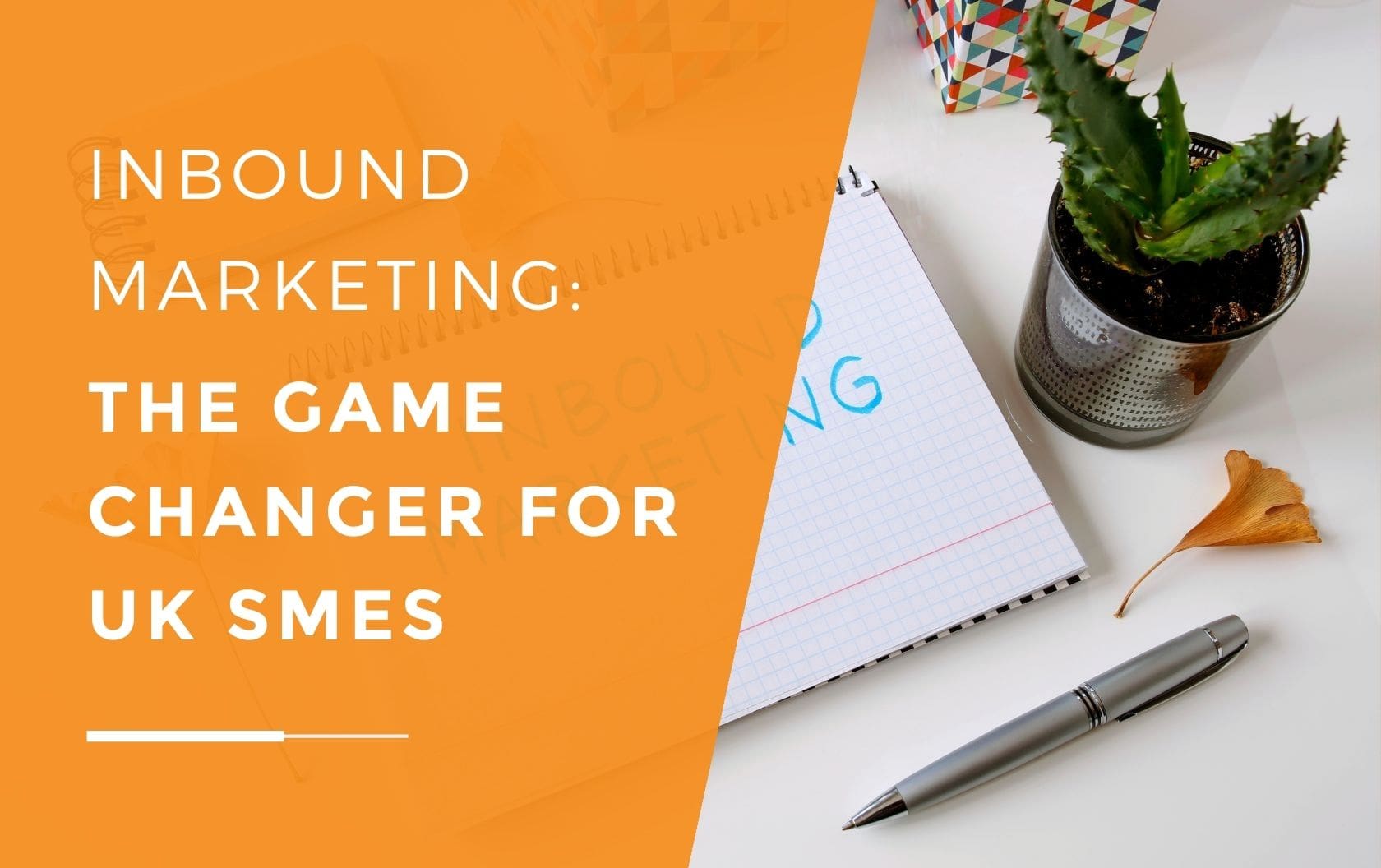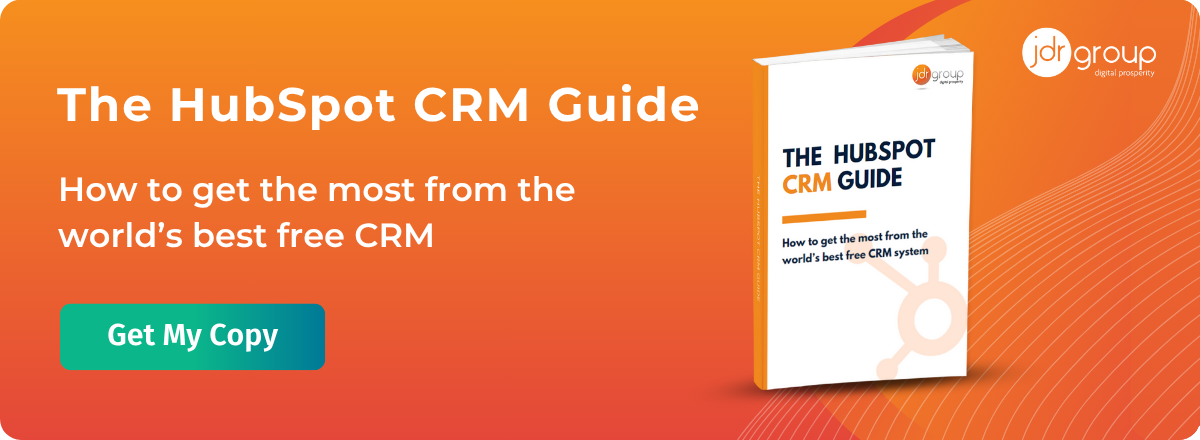The Rise Of AI In Marketing: What Every Business Owner Should Know
by Will Williamson on 08-May-2023 12:00:00

Artificial Intelligence (AI) software has revolutionised several industries over the past decade, and marketing is no exception. With a range of AI-driven tools now capable of automating routine tasks, gathering market insights, and enhancing customer engagement, it has become crucial for SME business owners to stay up to speed with this important technology. In this article, we will look at the ways in which AI is changing the digital marketing landscape and how SME business owners can leverage these trends to boost productivity and value.
But First, What Do We Mean By ‘Artificial Intelligence’?
AI is a field of computer science that focuses on developing algorithms capable of performing tasks that traditionally require human intelligence, including speech recognition, decision-making, visual perception, and language translation. AI covers a very broad technological area, including machine learning, natural language processing, deep learning, and robotics – the software technologies are used to develop systems that learn from data and experiences to improve performance and can make semi-independent decisions based on that learning.
AI differs from traditional software programming in that the algorithm is capable of developing outside the strict bounds of its initial programming, contrasting with standard coding, which is dependent on moment-to-moment human input.
So, how are AI applications transforming marketing?
1. Data Analysis And Insight
AI applications are elevating the power of data in digital marketing by enabling business owners to quickly analyse huge quantities of information, recognising behavioural patterns and preferences. This empowers SMEs to create hyper-targeted and personalised marketing campaigns that are more likely to resonate with their audiences than a static and generalised approach.
2. Smart Automation
AI-powered tools are automating a wide range of marketing processes, from email marketing and social media listening to content planning and curation, image generation, and even customer service in the form of chatbots. This frees up time and reduces the manual effort for businesses, leveraging a greater ROI from marketing expenditure.
3. Greater Personalisation
Personalisation is the key to successful digital marketing for small business owners, and this is one of the key areas in which AI-driven tools come into their own. AI-enabled marketing automation applications help businesses customise their marketing communications to cater to individual buyer groups and personas. By analysing user behaviour, preferences, and past interactions, AI tools can help businesses develop bespoke content strategies and messages for maximum impact on their target customers.
In What Ways Can SME Business Owners Benefit From AI Marketing Tools?
A wide range of business tools and marketing applications now include AI capabilities. These can help users optimise and better manage various marketing tasks, making them more efficient and helping drive a higher ROI. For example, AI-driven content recommendation engines can help streamline the process of identifying what content topics, search keywords, and themes your target personas will find most interesting and engaging, helping create more relevant article topics and landing pages.
Benefit One: Better Decision-Making
AI-driven data analytics gives you access to robust data and real-time insights on which to make informed decisions. This helps business owners better understand what marketing strategies are most effective for their market and apply this knowledge to fine-tune future campaigns for lower costs and better returns.
Benefit Two: Competitiveness
Investing in AI-driven marketing tools and processes, such as HubSpot, keeps you at the forefront of digital marketing trends and gives your business a competitive edge in the market, setting you apart from competitors who have yet to adopt these technologies. Real-world advantages of early adoption of AI include better results from PPC and a lower cost per click, better optimised social media and blogging campaigns, more email marketing click-throughs, and a lower overall cost per acquisition.
The Risks Of AI Marketing And What To Avoid
While embracing AI technologies can yield numerous benefits, AI is a new field and there are various considerations and potential drawbacks that business owners should be aware of:
1. Privacy Concerns
Customer privacy and data security is a prevalent concern in the digital age, and businesses must ensure that their data collection processes are transparent and compliant with UK Data Protection Regulations and the EU and UK’s GDPR. The extent to which AI applications are capable of the discernment required to comply with these regulations is currently unknown, and so all AI-enabled data collection and analysis processes will still require direct human oversight.
2. Overdependence On Automation
Relying too heavily on AI applications can cause businesses to lose their human touch, potentially damaging their customer relationships, and undermining the quality of their marketing strategy. Marketing communications and content should never be entirely created by an AI, as robots are incapable of discerning between facts that are true and those that are false, and the current generation of algorithms is too basic and formulaic to create genuinely personalised messages.
3. High Initial Costs
Although AI-enabled marketing tools can save time and money long term, SMEs may face high initial costs in implementing these systems. Business owners should evaluate potential AI solutions based on their long-term value and scalability, as well as their ROI goals from digital marketing. As with any field of software technology, mature platforms and well-tested applications offered better value and less operational risk than first-generation and untested applications.
4. Regulatory Uncertainties
The AI market is currently unregulated, but this is unlikely to remain the case long-term. In particular, Google has yet to formulate a definitive position on how it is going to allow AI algorithms to interact with its search engines, and what the ranking criteria should be for AI-generated and AI-enabled content. Until these issues have been clarified, we recommend that businesses proceed with caution in adopting AI marketing tools and consult with an experienced agency if you are unsure.
Embrace The Future But Tread Carefully
AI platforms are undeniably making waves in the way that businesses conduct digital marketing, but to make the most of the opportunities, business owners should carefully weigh the benefits against the associated risks. At the end of the day, AI applications are automated software scripts, not sci-fi robots, and the technology is not at a stage where it can replace human input in any area of marketing. However, by implementing a dynamic balance between human creativity and AI-driven productivity tools, businesses can leverage these new technologies to increase productivity and marketing, optimise the way campaigns are managed, and remain competitive in an ever-evolving digital marketplace.
To find out more about digital marketing and the benefits of automation, please call JDR Group today on 01332 343281.
- Inbound Marketing (SEO, PPC, Social Media, Video) (832)
- Strategy (368)
- Sales & CRM (197)
- Marketing Automation & Email Marketing (192)
- Business Growth (168)
- Website Design (162)
- Hubspot (141)
- Lead Generation (117)
- Google Adwords (100)
- Content Marketing (94)
- Conversion (53)
- Case Studies (49)
- News (47)
- Ecommerce (39)
- Webinars (36)
- SEO (27)
- AI (21)
- Events (19)
- LinkedIn Advertising (17)
- Video (17)
- Video Selling (15)
- Software training (13)
- Niche business marketing (11)
- The Digital Prosperity Podcast (10)
- Facebook Advertising (8)
- HubSpot Case Studies (7)
- Web Design Case Studies (1)
- February 2026 (9)
- January 2026 (12)
- December 2025 (15)
- November 2025 (6)
- October 2025 (17)
- September 2025 (16)
- August 2025 (14)
- July 2025 (14)
- June 2025 (5)
- May 2025 (19)
- April 2025 (15)
- March 2025 (13)
- February 2025 (13)
- January 2025 (8)
- December 2024 (2)
- November 2024 (4)
- October 2024 (21)
- September 2024 (4)
- August 2024 (8)
- July 2024 (14)
- June 2024 (16)
- May 2024 (25)
- April 2024 (15)
- March 2024 (18)
- February 2024 (5)
- January 2024 (10)
- December 2023 (6)
- November 2023 (10)
- October 2023 (13)
- September 2023 (12)
- August 2023 (14)
- July 2023 (13)
- June 2023 (14)
- May 2023 (15)
- April 2023 (13)
- March 2023 (14)
- February 2023 (13)
- January 2023 (15)
- December 2022 (13)
- November 2022 (6)
- October 2022 (8)
- September 2022 (22)
- August 2022 (15)
- July 2022 (13)
- June 2022 (16)
- May 2022 (14)
- April 2022 (16)
- March 2022 (17)
- February 2022 (11)
- January 2022 (8)
- December 2021 (6)
- November 2021 (7)
- October 2021 (11)
- September 2021 (10)
- August 2021 (7)
- July 2021 (7)
- June 2021 (4)
- May 2021 (4)
- April 2021 (1)
- March 2021 (3)
- February 2021 (5)
- January 2021 (4)
- December 2020 (7)
- November 2020 (6)
- October 2020 (5)
- September 2020 (9)
- August 2020 (18)
- July 2020 (17)
- June 2020 (17)
- May 2020 (10)
- April 2020 (21)
- March 2020 (24)
- February 2020 (21)
- January 2020 (12)
- December 2019 (23)
- November 2019 (12)
- October 2019 (14)
- September 2019 (16)
- August 2019 (15)
- July 2019 (13)
- June 2019 (6)
- May 2019 (8)
- April 2019 (4)
- March 2019 (2)
- February 2019 (2)
- January 2019 (2)
- December 2018 (3)
- November 2018 (24)
- September 2018 (11)
- August 2018 (9)
- June 2018 (3)
- May 2018 (6)
- April 2018 (14)
- March 2018 (12)
- February 2018 (16)
- January 2018 (15)
- December 2017 (15)
- November 2017 (18)
- October 2017 (23)
- September 2017 (19)
- August 2017 (28)
- July 2017 (27)
- June 2017 (25)
- May 2017 (18)
- April 2017 (17)
- March 2017 (16)
- February 2017 (17)
- January 2017 (14)
- December 2016 (21)
- November 2016 (27)
- October 2016 (25)
- September 2016 (16)
- August 2016 (20)
- July 2016 (19)
- June 2016 (14)
- May 2016 (20)
- April 2016 (24)
- March 2016 (22)
- February 2016 (28)
- January 2016 (27)
- December 2015 (28)
- November 2015 (19)
- October 2015 (9)
- September 2015 (12)
- August 2015 (5)
- July 2015 (1)
- June 2015 (10)
- May 2015 (3)
- April 2015 (11)
- March 2015 (14)
- February 2015 (15)
- January 2015 (12)
- December 2014 (2)
- November 2014 (23)
- October 2014 (2)
- September 2014 (2)
- August 2014 (2)
- July 2014 (2)
- June 2014 (7)
- May 2014 (14)
- April 2014 (14)
- March 2014 (7)
- February 2014 (2)
- January 2014 (7)
- December 2013 (9)
- November 2013 (14)
- October 2013 (17)
- September 2013 (3)
- August 2013 (6)
- July 2013 (8)
- June 2013 (4)
- May 2013 (3)
- April 2013 (6)
- March 2013 (6)
- February 2013 (7)
- January 2013 (5)
- December 2012 (3)
- November 2012 (2)
- September 2012 (1)
Subscribe by email
You May Also Like
These Related Blogs

The Importance Of A Top Quality Business Logo – The Tokyo Olympics Games New Logo Revised After Change Due To Copyright
The Tokyo 2020 Olympics Games organisers recently released their logo for the Games. The logo, called Harmonized Chequered Emblem, replaces the first …

Inbound Marketing: The Game Changer For UK SMEs
Every business is unique, and so are their marketing needs. While traditional ‘outbound’ marketing tactics such as cold calling and interruption adver …

YouTube vs Facebook Video: Which is the Best Option for Business?
When it comes to marketing your company on the internet, using videos makes a lot of sense. For a long time YouTube was the only game in town, but ove …






